N THE "VOLUNTARY" PARADOX IN A MANDATORY FRAMEWORK
Free tuition from kindergarten to high school is a big step forward in terms of social security. However, at the beginning of the school year, many families reported that if they study full association/club and boarding packages, the additional amount could be approximately 2 - 2.2 million VND/month/student. For workers with 2 or 3 children in school, this is a huge concern.
The paradox is evident in the classroom when, in one period, one group takes a paid course while the other group waits. "Voluntary" turns into soft pressure. The parents' decision immediately creates two different educational experiences in the same group, diluting the fairness of free tuition.
The reasons given by schools are the lack of resources such as teacher quotas, equipment, budget, etc., and the need for partners to compensate. That is the reality, but if the core competencies of the 2018 General Education Program such as foreign languages, information technology, and autonomy depend on paid services, then the question of designing the time frame and ensuring the quality of the main curriculum cannot be avoided.
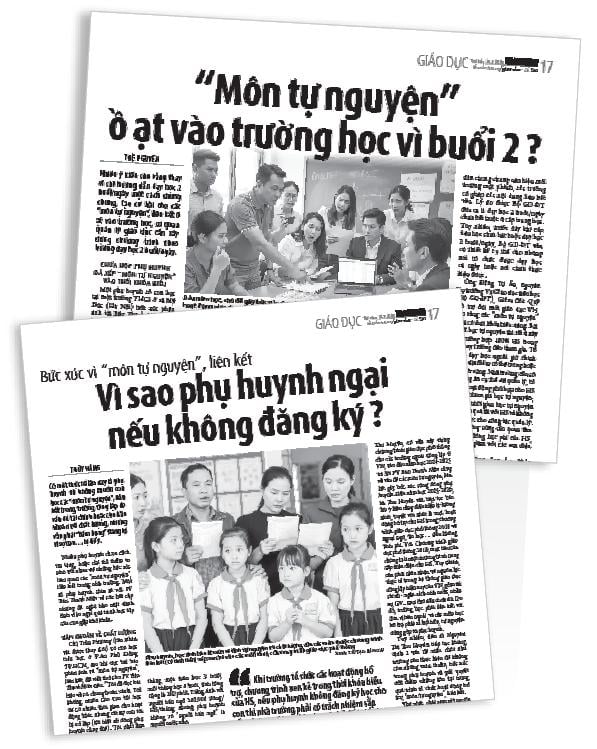
Parents are upset because many schools have "voluntary subject" timetables that are linked to regular courses.
The revenue and expenditure mechanism of the joint service is not consistent when the supplier decides the price while the school organizes the class, allocates rooms, and in some places even quotes the "management/facilities" ratio. Parents are rarely given public information about the teacher's profile, competency standards, roadmap, independent evaluation criteria, or principles for price formation and allocation ratio. When information is incomplete, "voluntary" is no longer an informed choice but a blind purchase.
This is a sign of marketization lacking rules of the game, lacking mandatory public standards (programs, prices, contracts, deduction rates, outputs), lacking supplier selection processes (bidding/ordering), and lacking independent monitoring of implementation right in schools.
Best interests of students
First, the law on education and children's rights sets the principle of equality of opportunity and the best interests of children. Collecting fees during compulsory hours and forcing students who do not participate to sit and wait easily creates stratification in the classroom, which goes against the spirit of equal access.
Public schools must publicize revenues, services, quality standards, and evaluation results. For externally linked services, there are minimum things that schools need to announce, such as: (1) legal capacity, teaching staff (degrees, certificates, background checks suitable for the school environment); (2) program, duration, learning materials; (3) price, price formation principles, allocation ratio; (4) output commitment, independent evaluation; (5) complaint mechanism, refund when standards are not met. If these factors are not publicized, "voluntary subjects" can easily become disguised coercion.
In addition, formal learning must be for compulsory programs within the approved time frame. Paid services should be within a separate time frame. If due to the nature of the school day, the school is required to provide a purposeful alternative activity (plan, goals, person in charge, assessment criteria). Children cannot be left to sit around and read freely. This not only reduces the learning experience but also increases the risk of discipline, safety and legal liability.
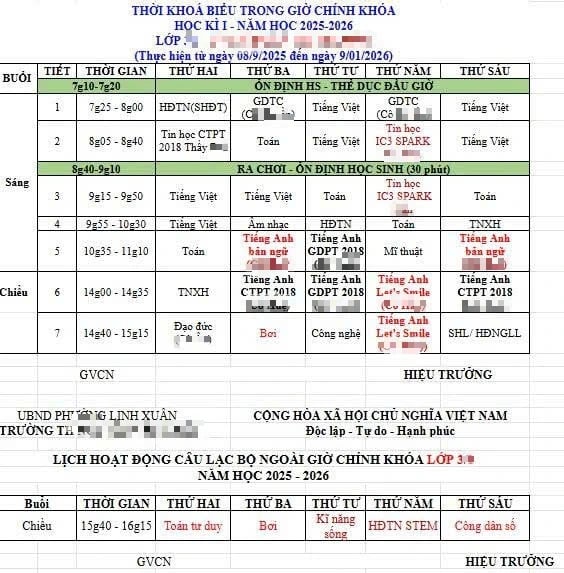
The timetable of a third grade class in an elementary school, published in the class's parents' group, caused outrage. The subjects highlighted in red are 'voluntary subjects', linked
PHOTO: PROVIDED BY PARENTS
NEED TO PROMULGATE A SET OF STANDARDS
To end the confusion between formal and service courses, ensure equal opportunities, transparency in revenue and expenditure, and school safety, it is necessary to issue a set of minimum standards that are applied uniformly throughout the system as a basis for arranging timetables, publicizing links, consulting parents, monitoring implementation, and defining responsibilities.
Schools should be required to stop alternating fee-based subjects with compulsory school hours. Review and publicize the entire linkage package.
Issue minimum criteria for suppliers. Apply model contracts, stipulate price ceilings by level or region. Publicize allocation rates, establish an independent evaluation system and a refund mechanism for non-achievement. Select partners through bidding, avoid subjective appointments.
Collect registration opinions in the form of participation only when there is active and clear consent, not by default. It is necessary to clearly state the alternative plan and the right to leave early for students who do not register. At the same time, clearly stipulate the person in charge, the ratio of managers, and the safety plan for the group that does not participate so that parents can choose to let their children leave early. In particular, there must be mandatory insurance records for risky activities such as swimming...
It is necessary to publicize timetables and service packages on the portal, have an online feedback channel, conduct surprise checks and publish results.
It is important to increase investment in core competencies right in the curriculum. Adjust the standards of teachers, classrooms, and equipment. Localities can set up a fund to support learning opportunities so that disadvantaged students can have fair access to extracurricular activities.
Free tuition is a completely correct policy, but allowing "voluntary subjects" to encroach on compulsory time slots, creating two experiences in one classroom, is not achieving the goal of fairness right from the school gate.
An equitable education is not built by slogans but by very concrete actions like a clean timetable, transparent boards, decent alternatives, independent measurement mechanisms and budget commitments straight to core competencies.
When those small things all work towards fairness, "voluntary" will return to its true meaning and students will have a decent class.
Repositioning socialization
True socialization must supplement diverse needs, not replace the core curriculum. Putting the associated subjects in the right place is the minimum, such as concentrating them in a specific time slot (e.g. Friday afternoon or Saturday morning). Those who need them can register, and those who do not attend can leave early or participate in planned alternative activities.
Suppose each student spends an additional 2 million VND/month on the connection multiplied by several million students and 9 months/year, the number is huge. So what learning value does that expense create, how is it measured? Is there any independent evaluation channel to verify the effectiveness? Can the socialized part be invested back into the curriculum by the state instead of letting parents buy each service separately? Only when convincingly answering this series of questions will socialization expand opportunities, not widen the gap.
Solution to study 2 sessions/day
It must be affirmed that organizing 2-session teaching/day is not a spontaneous experiment, but has a full legal basis.
However, the current difficulties and problems are undeniable. First of all, there is the lack of facilities, then there is the lack of teachers, especially in music , fine arts, information technology, and foreign languages. In addition, financial pressure is also a problem: the budget is not evenly allocated, and if the mobilization of social resources is not transparent, it can easily lead to reactions. And if the organization of the second session is not scientific, the risk of overloading students is real, turning the second session into "disguised extra classes" which goes against the spirit of innovation.
To overcome these limitations, practical, specific solutions are needed, classified according to the conditions of each school. For schools with sufficient facilities and teaching staff, it is necessary to boldly implement the standard model: teaching 5 days/week, 7 periods per day, 4 periods in the morning - 3 periods in the afternoon. The morning content focuses on the compulsory program according to regulations; in the afternoon, the main program continues, while arranging review, tutoring, training, and teaching talents. After the 7th period, the school can organize additional activities according to needs such as digital skills, sports , music, painting, etc. on the principle of voluntariness and parents pay.
Thus, the educational content according to the needs after the 7th period of the day will meet the needs of students who voluntarily wish to attend or whose families cannot pick up their children before 4:30 p.m. and wish to register for extra classes.
For schools that lack classrooms, organizing extra classes and training should only be done outside of regular school hours, teachers are still entitled to overtime pay, students do not have to pay fees (because this activity has been regulated in documents of the Ministry of Education and Training). For schools that have enough classrooms but lack teachers, it is still necessary to organize 2 sessions/day according to the general plan, at the same time pay overtime pay to the existing staff, or contract additional teachers for 7 periods per day using the state budget.
At the management level, the Department of Education and Training needs to classify schools into 3 groups: qualified, lacking classrooms, and lacking teachers. At the same time, promote the mechanism of coordinating teachers between schools, especially in specialized subjects; support reasonable budgets; and especially require schools to publicly and transparently disclose all revenues and expenditures related to the second session activities, while emphasizing that they absolutely do not insert periods according to demand into the 7-period time frame per day.
Quang Minh (Phu Giao Political Training Center, Ho Chi Minh City)
Source: https://thanhnien.vn/mon-tu-nguyen-trong-gio-chinh-khoa-nhung-van-de-phap-ly-can-xem-xet-185250921202645987.htm


![[Photo] Da Nang: Hundreds of people join hands to clean up a vital tourist route after storm No. 13](https://vphoto.vietnam.vn/thumb/1200x675/vietnam/resource/IMAGE/2025/11/07/1762491638903_image-3-1353-jpg.webp)





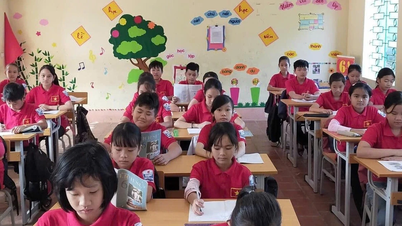

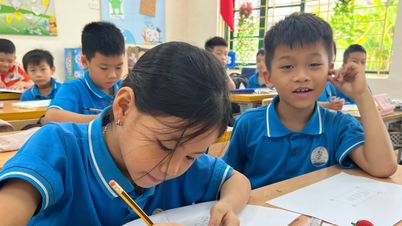

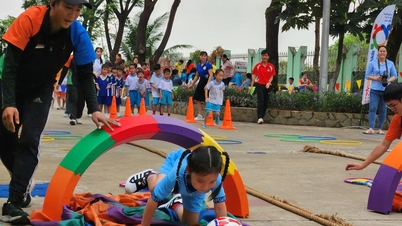
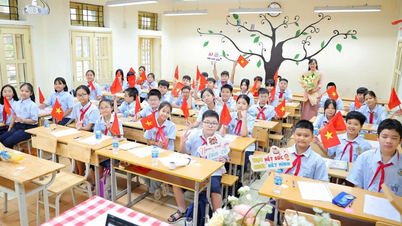
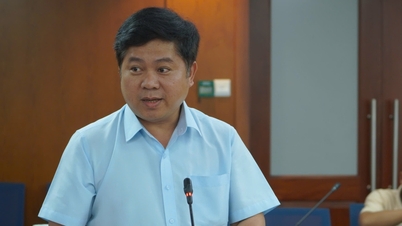









































































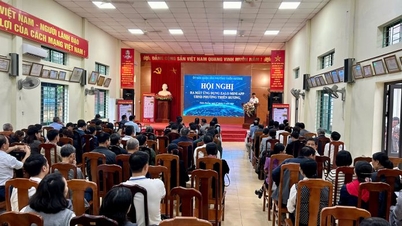





















Comment (0)